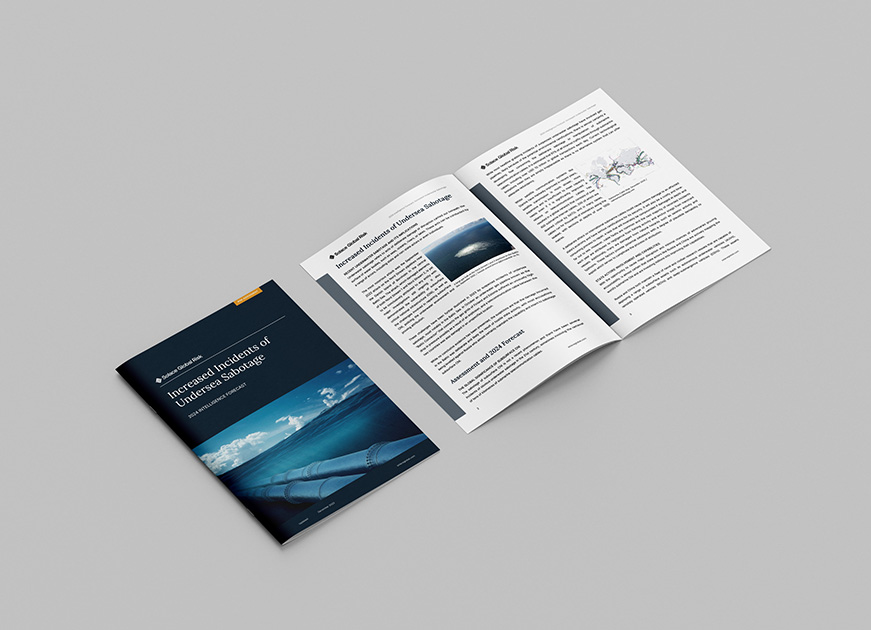Evacuations from High-Risk Locations Call +44 (0)1202 308810 or Contact Us →
Increased Incidents of Undersea Sabotage in 2024

Undersea Sabotage: A Focus for International Security
Amidst geopolitical tensions and technological advancements, undersea sabotage has emerged as a critical focus for international security. As part of our Global Risk Intelligence Forecast 2024, this analysis delves deep into the intricate dynamics of undersea sabotage.
Defined as deliberate acts of damage or disruption carried out beneath the surface of water bodies, this strategic maneuvering is perpetrated by a diverse array of actors. These actors range from state entities to non-state actors and even individuals. Undersea sabotage has drawn global attention for its potential to destabilise critical national infrastructure (CNI) and disrupt maritime domains.
Recent Undersea Sabotage and its Implications
The most notorious attack was the September 2022 attack on the Nord Stream pipelines near the Danish Island of Bornholm in the central Baltic Sea. No entity has conclusively been attributed to the attack that damaged elements of both Nord Stream 1 and 2, as major investigations are still ongoing. The attack underscored the vulnerability of underwater critical national infrastructure (CNI) while also highlighting the challenges in repairing, policing, and attributing incidents.
Suspected incidents of undersea sabotage, notably in the Baltic Sea, have further illustrated these challenges in 2023. In October, there was a significant decrease in pressure in the “Baltic Connector,” an underwater gas pipeline linking the gas networks of Finland and Estonia. An explosion may have caused this drop in pressure. Additionally, an unspecified location sustained damage to a telecommunication cable between the two countries.
Although conclusive evidence is lacking, suspicions indicate deliberate damage in the Baltic was likely due to hostile state activity. Most accusations point to Russia, which almost certainly possesses the capability and intent to sabotage subsurface CNI.
In this report:
- Increased Incidents of Undersea Sabotage
- Recent undersea sabotage and its implications
- Assessment and 2024 Forecast
- The global significance of subsurface CNI
- State actors’ involvement and capabilities
- Geopolitical tensions and specific threats
- Non-state actors and current policing challenges
- Future projections and mitigation efforts

Related reports on offshore security
Global Supply Chains at Risk in the South China Sea in 2024
Houthi Attacks in the Red Sea
Houthi Seizure of Merchant Vessel Galaxy Leader
China’s aggression in the South China Sea has prompted international condemnation and spurred efforts to finalise a non-aggression pact with claimant territories. Lack of co-operation could lead to key supply chain disruptions in 2024.
Since the start of the Israel-Hamas war, the Houthi Movement has supported the Palestinian cause by targeting southern Israel directly and Israeli-linked vessels on shipping routes in the Gulf of Aden, Red Sea, and the Bab-al-Mandeb.
In a brazen incident on 19 November, the Galaxy Leader, a Bahamian-flagged and Japanese-operated merchant vessel (IMO: 9237307), fell victim to suspected Houthi Movement militants in the Southern Red Sea.